Iran’s Reform Front Nominates Presidential Candidates
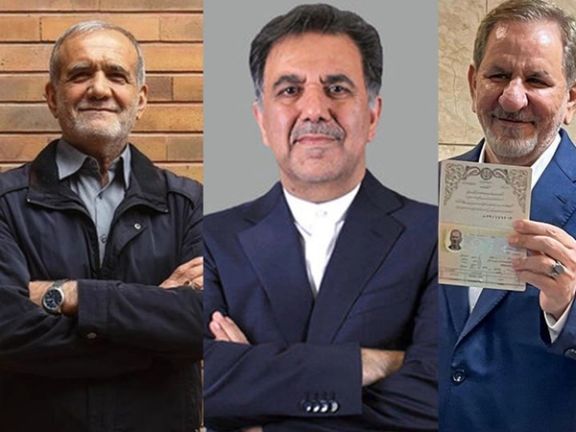
Iran's Reform Front, a coalition of 'reformist' groups and political parties, has put forward their candidates for the June 28 snap presidential election.

Iran's Reform Front, a coalition of 'reformist' groups and political parties, has put forward their candidates for the June 28 snap presidential election.
The announcement was made by Javad Emam, the spokesperson for the Reform Front, via a tweet that revealed Abbas Akhoundi, Masoud Pezeshkian, and Es'haq Jahangiri as the chosen candidates for the government-controlled election to choose a successor for Ebrahim Raisi who died in a helicopter crash last month. Each of these politicians who have registered to run secured two-thirds of the internal votes.
Former President Mohammad Khatami, who is highly regarded by many Iranian 'reformists', announced that he will endorse the presidential election only if at least one candidate from the Reform Front is permitted to run.
The path ahead for the nominees appears fraught with challenges. The Guardian Council, a 12-member body under the control of Supreme Leader Ali Khamenei, has a storied history of blocking 'reformist' candidates. The practice has reinforced the stronghold of conservative and hardline groups within Iran's political realm, with a significant number of potential 'reformist' candidates having been disqualified since 2020, affecting both parliamentary and presidential races.
Abbas Akhoundi, the former Minister of Roads and Urban Development under President Hassan Rouhani. Masoud Pezeshkian, with his past roles as health minister and parliamentary leader, earlier claimed to restore faith in the electoral process among the disenchanted public. Es'haq Jahangiri, a moderate political figure and former vice president is the other one named by the front.
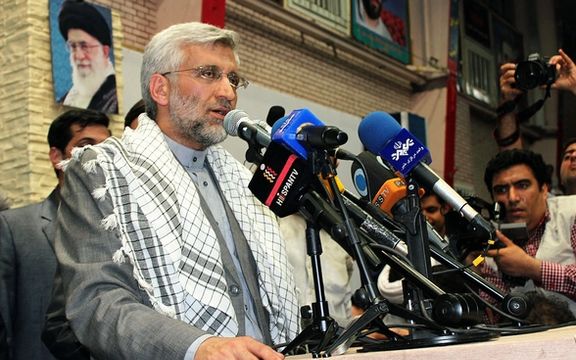
Amidst a crowded field of 80 candidates for the upcoming state-controlled presidential election in Iran, one name continually stands out: Saeed Jalili.
At 55, the anti-American ideologue and self-proclaimed revolutionary is seen by many as a potential replica of Ebrahim Raisi’s government.
The state-monitored Rouydad24 news outlet suggests that while his path to victory is complex, certain elements within Iran's political landscape could favor his potential to win the presidency.
Jalili, an ultraconservative close ally of Supreme Leader Ali Khamenei, belongs to the Principalist faction in Iranian politics, which emphasizes the principles of the 1979 Islamic Revolution.
Having run as a presidential candidate in the past, one of Jalili's official campaign slogans was “Great Jihad for Iran’s Leap Forward.”
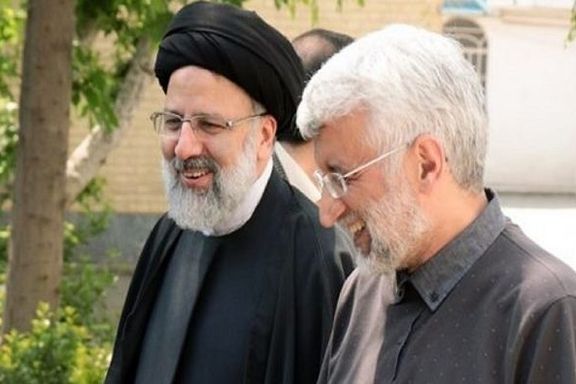
He has held significant diplomatic and security roles within the Iranian government, serving as the secretary of the Supreme National Security Council from 2007 to 2013 and currently as a member of the Expediency Discernment Council.
Khamenei, who many experts assert virtually selected Raisi in 2021 despite the facade of elections, has maintained a favorable relationship with Jalili for many years.
Pointing to his inflexibility as Iran’s nuclear negotiator between 2007 and 2013, Rouydad24 notes that Jalili’s resistance to making concessions and his rigid approach resulted in multiple UN Security Council and IAEA Board of Governors resolutions against Iran. These resulted in international economic sanctions that began to unravel the relative stability of Iran's oil-dependent economy.
During his tenure as deputy foreign minister, several European diplomats described Jalili to Reuters as someone who strongly and unwaveringly expressed his views. One diplomat even remarked that Jalili "specialized in monologue" rather than engaging in debate.
His approach often frustrated diplomats, with then-Under Secretary of State for Political Affairs William Burns recounting an instance where Jalili engaged in nearly 40 minutes of philosophical discourse during a meeting, avoiding direct answers and complicating the negotiation process.
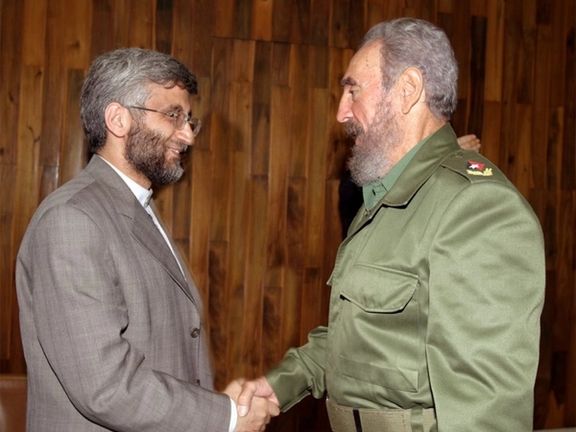
Yet, this firm stance on nuclear negotiations has shaped the perception of him as a figure who does not easily bend to Western pressures. It’s likely that certain factions, particularly hardline and conservative groups, may support him for his ideological purity and rigid approach to negotiations.
Rouydad24’s analysis of Jalili suggests that his resistance amid nuclear talks may have been part of a broader strategy by the regime to develop Iran's nuclear capabilities – while buying time.
Be that as it may, Jalili’s diplomatic style led some experts to conclude that he would not be a suitable candidate, if the regime wants to advance the state of its current foreign policy and improve relations with the West.
His main rival for the presidency may be Ali Larijani, a conservative and former parliamentary speaker. Some say the stage is set for a diplomatic dichotomy reminiscent of the 2013 election, where their contrasting approaches were already evident.
In 2022, according to some accounts, Jalili confronted Larijani over nuclear negotiations during a special meeting of the Expediency Council. Jalili reportedly proposed that Iran withdraw from the Non-Proliferation Treaty, a suggestion opposed by Larijani and others.
Rouydad24 analysis points out that in Iran's foreign policy, the true power lies with higher-level authorities who make the final decisions. This could be a reference to the Supreme Leader. The President and the Ministry of Foreign Affairs act as executors of these decisions. Despite this clear hierarchy, different administrations have managed to influence the decision-making process.
It’s unclear whether Jalili, a veteran of the Iran-Iraq war and former member of the Islamic Revolutionary Guards, would shift his stance on reaching a truce with Western powers.
Known for his strong “nationalistic” views and deep belief in the Islamic Republic’s moral and strategic success against perceived American aggression, Jalili has always taken a hardline approach. His track record suggests that as President, he would continue to emphasize resistance and minimal concessions, casting doubt on any potential move towards diplomatic compromise with the West.
It’s more likely that Khamenei will prefer to maintain the status quo, positioning Jalili as a convenient successor to Raisi.
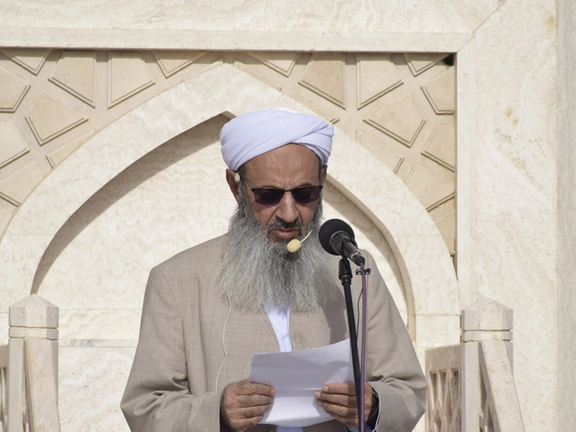
Iran's top Sunni cleric, Mowlavi Abdolhamid, lamented the country's severe economic challenges, citing the failure of both "reformist" and conservative factions to manage government affairs effectively.
"Iranians are grappling with unprecedented challenges as their currency faces massive devaluation, ranking among the world's least valuable, despite the nation's abundant natural resources, such as gas and oil," said the top religious leader of Iran’s largely Sunni Baluch population during his Friday prayer sermons in Zahedan, the provincial capital of Sistan-Baluchestan.
The statement comes amid upcoming snap presidential elections, called following the sudden death of President Ebrahim Raisi in a helicopter crash on May 19. Mohammad Mokhber has since assumed the role of acting president.
The outspoken cleric emphasized the nation's desire for freedom and women's demand for equal rights, pointing to the failure of both "reformist" and conservative factions to fulfill these aspirations.
“Despite their promises, the previous administrations failed to deliver. Reformists also failed to bring about a meritocracy system,” he said. “We talked to the fundamentalists [conservatives] about national and regional problems, but they didn't show any real commitment to solving them.”
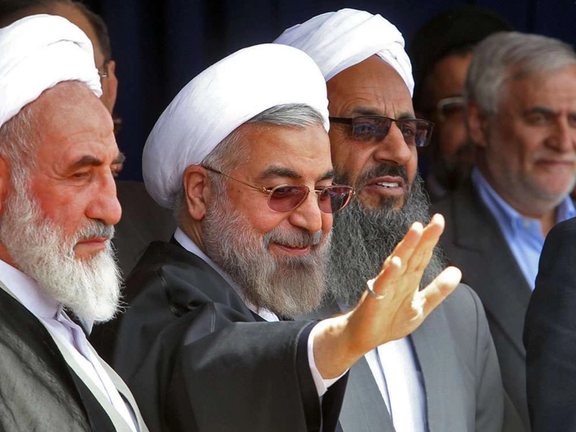
In his critique of past administrations, Abdolhamid highlighted their constrained authority, asserting that "affairs are overseen from elsewhere," likely referring to Supreme Leader Khamenei's ultimate control over decisions, and raised concerns regarding the state's transparency and accountability.
“The previous administration [under Hassan Rouhani] pledged to appoint 10 Sunni ambassadors, having received nominations from us for these positions. However, the Foreign Minister said that decision-making powers were not solely within their jurisdiction, and other institutions are involved in the decision-making,” Abdolhamid said.
Khamenei and his supporters have largely hesitated to acknowledge the economic strain on the country.
Pointing to the "weight of responsibilities" inherent in the role of president, the outspoken cleric questioned the candidates, asking if they have considered strategies to address the pressing issues facing the country, issues that have contributed to a rise in suicides.
Abdolhamid's views seem to align with many critics who consider the Iranian presidency to be more of a symbolic post. With significant decisions made at Khamenei's headquarters.
The incoming president, set to be elected by the end of June, faces the challenge of addressing escalating economic woes exacerbated by ongoing oil export and banking restrictions due to international sanctions. These sanctions primarily stem from Iran's advancing nuclear program and financial support for terrorist groups, like Hamas and Hezbollah.
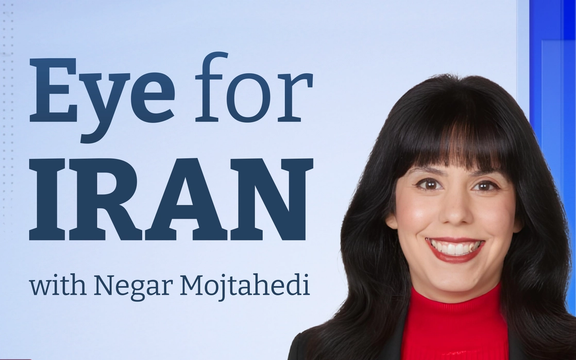
Iran is headed to an election on June 28, but it's not just any ordinary election: it’s a race to replace Raisi after the president died in a helicopter crash near the border with Azerbaijan on May 19.
The country is in a crisis mode, facing one of its biggest challenges in decades amid public distrust of the ruling system.
In this episode of ‘Eye for Iran,' host Negar Mojtahedi speaks with Jason Brodsky, the policy director of United Against Nuclear Iran and Behnam Ben Taleblu, a Senior Fellow at the Foundation for Defense of Democracies (FDD) about the significance of Raisi’s death and how his death is perceived by the power brokers of Iran.
‘Eye for Iran’ also takes a deeper look into the political heavyweights throwing their names into the mix, their backgrounds and examines how the Guardian council will make its final decision on who gets to run amid succession.
“The presidency since 1989 in the Islamic Republic of Iran has been a death sentence politically and literally in Raisi’s case,” said Jason Brodsky, the policy director of United Against Nuclear Iran.
“The Islamic Republic is going to have a new president by July. The person who occupies that position, unlike say 2013, when former President [Hassan] Rouhani came in, that person will likely reside over the transition of the Islamic Republic, given that Khamenei will be 89 and a half or 90 unless Khamenei ends up being a centenarian or something else,” said Taleblu.
Raisi’s sudden death in a helicopter crash marked a significant moment in Iran’s modern history, but will the circumstances of his death change anything?
Watch and listen to this week’s episode of ‘Eye for Iran’ as your host and guests dig into those topics.
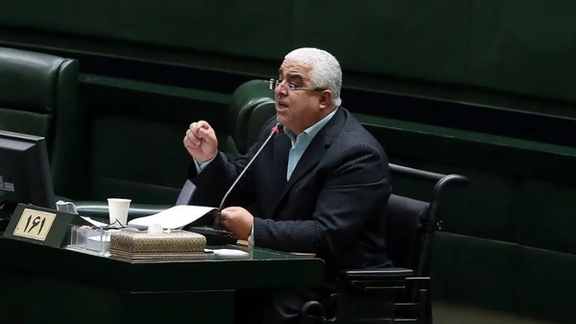
A former Iranian lawmaker criticized hardline ministers, including presidential candidate Mehrdad Bazrpash, who avoided flying on Ebrahim Raisi's doomed helicopter last month, for quickly “jumping in to replace” the late president.
“Raisi was nurturing vipers in his bosom. It's perplexing to see these government ministers, who were supposedly in mourning just two weeks ago, now eagerly vying for the presidency. Why the sudden change of heart? Gholam-Ali Jafarzadeh Imanabadi said in an interview with Eslahat News on Friday.
Five members of the current government have registered to participate in the upcoming snap presidential election, a decision critics have characterized as odd, since allegedly as a coherent coalition, they could not decide on a candidate before they registered to run.
Imanabadi, referencing Bazrpash, the incumbent transport minister, remarked, "Some individuals, without providing explanations for their last-minute change of helicopter, have now swiftly prepared comprehensive program books for the forthcoming administration in a matter of days."
“How were they able to draft an extensive presidential agenda within just two weeks of the helicopter crash? This raises doubts and inquiries among the populace, particularly considering lingering uncertainties surrounding the crash,” he added.
Even before Raisi's body was recovered from the crash site last month, there were rumors about Bazrpash's sudden change of plans and refusal to board the same helicopter as Raisi.
Journalist Fariborz Kalantari claimed that Bazrpash and his team had convened a meeting on May 22 to strategize his candidacy in the June 28 elections to succeed Raisi.
In registering his candidacy, Bazrpash presented reporters with a voluminous document purportedly outlining his government's comprehensive plan.
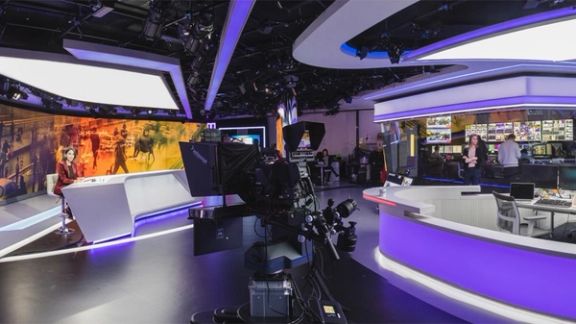
Tehran has vowed to continue threatening the news channel Iran International in blatant disregard of the call by UN experts to cease its transnational violence against the UK-based network and its journalists.
Kazem Gharibabadi, head of the Judiciary's Human Rights Headquarters, labeled the network as "terrorist" on social media platform X and issued threats against its employees.
Calling the news network a "puppet of the Zionist regime," Gharibabadi said that the Islamic Republic has designated the channel as a "terrorist" entity and is "pursuing its agents and associates."
The official further implied that Iran International sought help from human rights organizations to reduce Iran's pressure on them.
His comment come a week after five UN experts condemned transnational violence, "death threats, and intimidation against Iran International staff."
The UN experts were clear about their perception of the threat. “We are deeply alarmed that death threats and intimidation against Iran International staff escalated into the violent stabbing of journalist Pouria Zeraati outside his home in London on 29 March 2024."
In reaction to the UN experts’ statement, Kazem Gharibabadi did not deny Islamic Republic’s threats against the channel.
He said that Iran International TV “has appealed to human rights mechanisms in hopes of reducing Iran's pressure, unaware that we will not appease terrorists!”
Zeraati, one of the network’s television hosts and journalists, was stabbed outside his home in London in March, prompting British police to launch a counterterrorism investigation.
A spokesman for the network said, "Iran International TV stands as a beacon of independent journalism, dedicated to delivering accurate and unbiased information. The network prides itself on upholding the highest principles of journalism, ensuring that its reporting remains fair and impartial."
The spokesman said the pressures will not have any impact on Iran International’s work and its reporting.
The mission is to provide comprehensive news coverage to Iranians both within the country and abroad, the spokesman added. "This commitment is reflected in the channel's rigorous approach to news gathering and reporting, which includes timely updates and in-depth analysis of key developments in Iran and around the world."
Last year, Scotland Yard disclosed that police and MI5 had foiled 15 plots since the start of 2022 to either kidnap or kill UK-based individuals perceived as “enemies of the Iranian regime.”
The five special UN rapporteurs urged the Iranian authorities to “refrain from violence, threats and intimidation against Iran International and its staff, online and offline, and other journalists and media workers reporting on Iran from abroad.”
The threats faced by Iran International and its staff from Iranian authorities and their proxies are intended to silence critical media reporting on Iran, the experts assert.
Since its founding, the network and its journalists have endured threats, but these reportedly surged dramatically after the "Woman, Life, Freedom" protests erupted across Iran in 2022.
After multiple threats from Tehran, Iran International was temporarily forced to relocate its broadcasting activities to the US in 2023. The broadcaster has since resumed its work from a studio in the UK.
In 2022, the Islamic Revolutionary Guard Corps (IRGC) orchestrated an assassination plot targeting two Iran International news presenters, Fardad Farahzad and Sima Sabet. The plan initially involved a car bomb but was later foiled by a double agent working for a Western intelligence agency.
The following year, Iran International journalist Kian Amani was physically and verbally assaulted by a member of Iran’s delegation to the United Nations at a hotel in New York.
The experts also asserted that the threats emanating from Iran were part of a broader pattern of attacks against Persian language media and dissidents abroad, including journalists working for BBC News Persian, Deutsche Welle, Voice of America, IranWire, and Radio Farda.